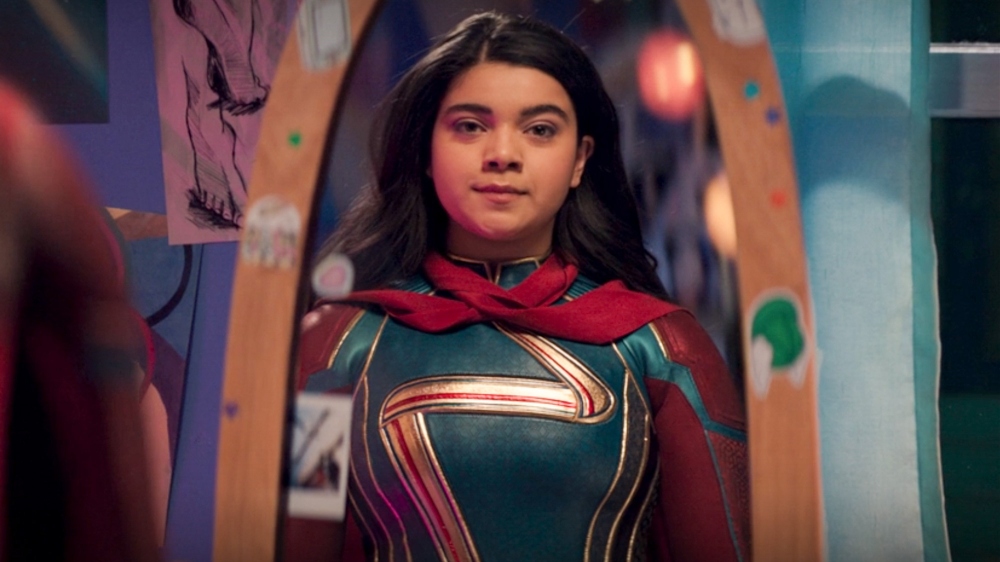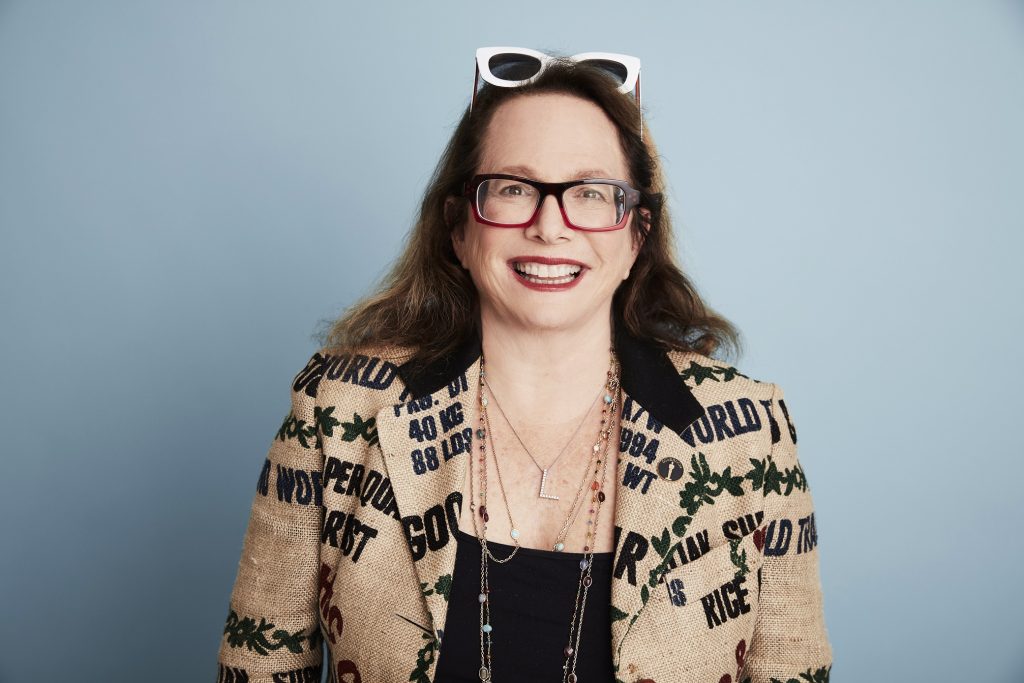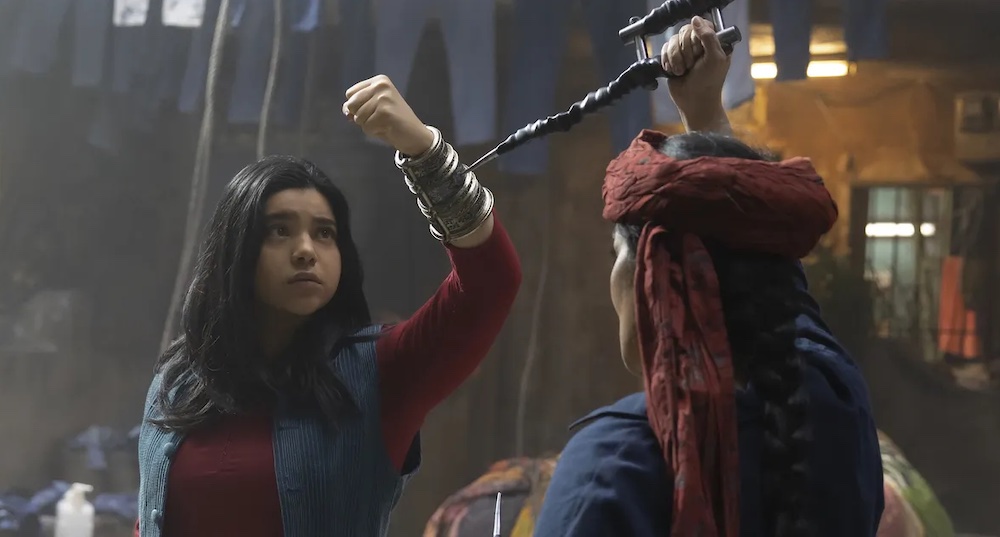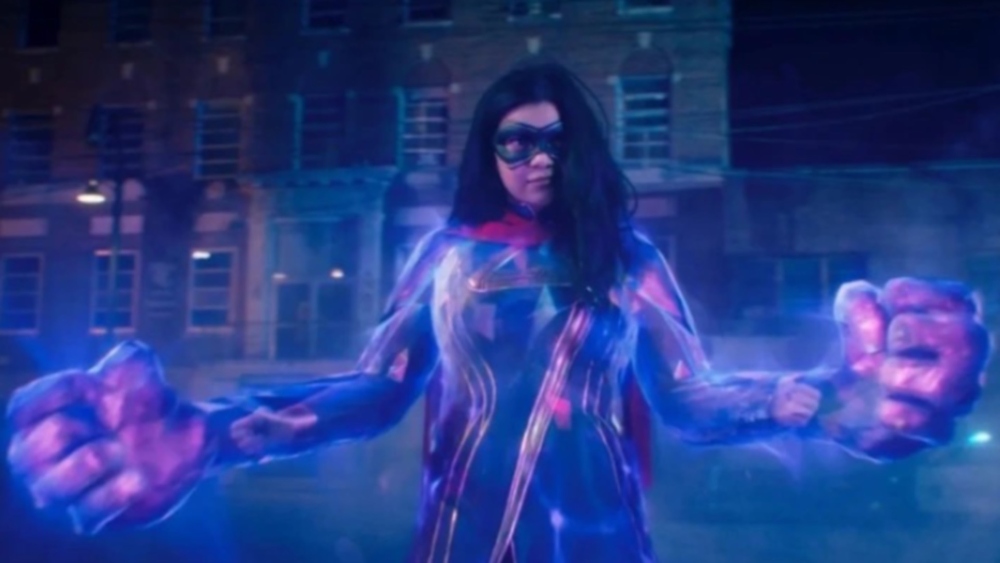
Composer Laura Karpman has an impressive Emmy record, with previous nominations for Odyssey 5, Masters of Science Fiction, Lovecraft Country, and Why We Hate, which scored her a win for original dramatic score. Now she’s back with two bids this year, for score and main title music for a major Marvel project: Ms. Marvel.
Below the Line spoke with Karpman about how closely she follows the Marvel Cinematic Universe, and how her work on The Marvels led into the TV series that takes place before the events of that upcoming film. She stressed how the lack of traditional opening titles for Marvel projects isn’t an issue since the main title theme gets its own showcase at the close of every episode.
She looked back at her work on two memorable series, Lovecraft Country and Underground, and how collaborating with showrunner Misha Green helped lead her to where she is today. She also reflected on another genre that fills a surprising number of slots on her resume: documentaries having to do with faith.

Below the Line: Were you aware of Ms. Marvel as a comic book character before coming on to the show?
Laura Karpman: No, I wasn’t. I knew about the show and I knew that she was coming around to the MCU. I didn’t know much about her, though and, by then, I think I had read the script from The Marvels. I had been hired for that so I was aware of her presence in that movie.
BTL: Interesting that it went that way rather than the other way, since obviously we got this show a lot before the movie.
Karpman: I know! But you know, that’s life. What can I tell you? It’s all very, very interesting. But I like it. I think it’s a cool way to introduce somebody to the MCU. I like the idea of using the Disney+ platform to take characters and either introduce them or take other characters that you don’t know as well like Loki and then Moon Knight and take that time to explore who these people are as well, if you can call them people. Beings, I should say.
BTL: And you had already worked on What If…? before all this, right?
Karpman: I had, yeah.
BTL: So it sounds like you also are pretty up to date on what’s going on with the MCU, even when you’re not working on the projects.
Karpman: Yeah, just because now that I’m involved, I do know, and if you’ve seen What If…?, it touches on everything, so you have to know what’s going on to be able to decide how you want to incorporate it into that particular show.
BTL: It’s such an expansive TV and movie universe with everything just tied together, and there are so many different composers working. Is there any sort of consistency to the music that you felt you wanted to have going in?
Karpman: For my own music, among the three projects, I think I’m that. I think they’re all different and they ask for really different things, but I do have an aesthetic. I do have a sound. Even when it’s being heavily influenced by South Asian music or, in the case of What If…?, sometimes it’s about taking the wonderful compositions of other composers and putting them through my head and pulling them out on the other side. That’s kind of the What If…? way. It really, truly is is a composer’s dream playground. My work with the MCU has been some of my favorite stuff I’ve done my whole career. I love it. It’s always interesting. It’s always compelling. I love the stories and I love the musical opportunities that are present, and every single challenge that comes up.
BTL: Is there any research that you had to do into Southeast Asian music to get the right sound for Ms. Marvel specifically?
Karpman: Oh yeah, a lot. And I had worked on a number of projects before this, so I had some familiarity with certain things, but I also brought in a lot of phenomenal collaborators who really shaped those aspects of the score for me.

BTL: One of your Emmy nominations this year is for the episode Time and Again, which of course is a very memorable installment. Was that something completely separate from the whole?
Karpman: No, I don’t think so. I think it was the culmination of the whole. I think everything in the show had been building up to that somehow. The partition is, I think, the most significant movement of people in the history of the world. It was massive and it was devastating. A major world event that not enough people know about or understand. So it was my honor to do what I could to bring the emotion of our particular story in it to the fore.
BTL: Do you tend to score characters specifically so that each person might have their own theme?
Karpman: I don’t do it necessarily all the time, but certainly in the MCU you do. In this case, there was a love theme for Aisha and Hasan, there was the heritage theme, which has to do with the bangle. There’s Kamala Khan’s theme. All of these things filter together in this particular episode.
BTL: You also have an Emmy nomination for main title theme music, which is interesting. It’s great, of course, but I think back to the times of Odyssey 5 and all that, when there were these long opening credits with everything. And this is not a show that has that.
Karpman: Right.
BTL: Is there a challenge for a main title that way?
Karpman: No, because, in Marvel stuff, you’ve got the flip at the beginning and then the main on ends at the end of the show. The main on ends are actually a really, really important opportunity in the MCU. Where I first really started thinking about it was with WandaVision, because those first two episodes are very specific and then you get to the main on ends and it’s like, oh, “This isn’t what you think it’s going to be.” It’s really wonderful, and I think that influenced the way that I thought about this particular show as well.
I think they are across the MCU to push the audience into where you may be going, where you may be coming from. It is musical real estate that’s really important. And that’s how Marvel does it. The main title sequence is at the end of the film and then other projects do it as well, of course. But you’ve got to keep watching Marvel movies because you never know what’s going to happen in the middle of an end credit sequence. You might get something really important.
BTL: For The Marvels, have you gone back and looked at – or listened to – the projects where the other main characters come from to make your sound?
Karpman: Yeah, of course. Without getting into specifics about The Marvels, you have a team of people, so it’s a little bit different, but I always want to be familiar with where people are coming from. The thing about the MCU is, you’re coming into a timeline. Stuff is going on. As a composer, you find your way in there and then you go along for this length of time and then you might pass it off to somebody else, or you might be along for that next length of time.
I like to know what’s going on, whether I use it or not, and I think it’s sensitive to fans. If you’re not going to use something, you need to have a reason why. And if you are, you need to have a reason why. In What If…? the whole idea is taking themes and either turning them on their ear and doing something different or altering them because even if you got Erik Killmonger, well, what is he doing in What If…? It could be completely different than who he was in Black Panther.
Same across the board for the characters in What If…? You want to know what they’re coming from, but then you’ve got to be able to go, okay, well, in this multiverse, they’re doing this. I think that, as a collaborator and as somebody who loves all of this stuff, you have to know what’s going on.

BTL: Moving away from Marvel, I want to ask about Lovecraft Country, which was one of the shows that I had seen on your resume and made me immediately think of that scene driving away with the car rushing after them in the first episode. The episode that got you the Emmy nomination was the trip back to Tulsa. What was your approach like for that show?
Karpman: Well, I think that actually Rewind 1921 is very much like episode five of Ms. Marvel and I thought about it a lot. I thought about these world events that people don’t know about. I thought about, how do you honor the sacrifices and the death and the loss, while also bringing a sense of possibility and hope and future to these situations? Both of those episodes took a huge emotional toll. It’s funny about writing music, because I write music every day. That’s just what I do, right? That’s my gig. That’s my job. Some of it you grabs you. It all grabs you to an extent, but it’s different.
Those two things, episode five of Ms. Marvel and episode nine of Lovecraft Country, those slayed me. I had to be alone. They were both done quickly. Episode five of Ms. Marvel, I had to do in five days and Tulsa was during the George Floyd murder. Exactly when I was writing that music was literally during that time period. You just have to empty out the house and you have to create a lot of space because it takes a toll. It’s like being an actor, I think. Probably, some things take it out of them and some things don’t, although I have no idea how they do what they do.
But anyway, Lovecraft had, strangely, a lot of the same considerations as Ms. Marvel. You’re thinking about people who have been kept out of genre films. Every episode of Lovecraft Country was looking at a different kind of genre of film. How do you allude to those genres but while making it something that’s unique to the project? I think in some ways, that’s What If…? but in some ways it’s really also Ms. Marvel, because you’ve got this this young woman who’s coming into the MCU but who has a different cultural background than we’re used to seeing in the MCU. Not as much anymore, but certainly in the past. So, how do you allude to that? Where do you do it? Where don’t you do it? These are all the things that you spend all your time figuring out with the various showrunners. This is what Misha Green and I spoke about, and this is what Sana Amanat and I spoke about. This is the beef of it. This is where you’re really figuring out how to score something and how to support the creator’s intentions.
BTL: There’s another show that stood out to me looking back at your work, which is Underground.
Karpman: Oh wow, yeah.
BTL: That’s a little bit more literal and not sci-fi assisted, but there are still some important themes and some of the same pacing to Lovecraft Country.
Karpman: Yeah, but I think also, they’re superheroes. There’s that. They did the unthinkable. They literally had to go into themselves and pull out superpowers in order to survive and escape. I know that Misha thought of it that way for her coming out of her background. That’s why she did that show, because she wanted to bring that sort of aesthetic to that particular time and those particular situations. Thank you for watching that. I loved that show, too. Great acting, amazing acting. Jurnee Smollett, Amirah Vann, Aldis Hodge, all great actors.
BTL: I also noticed another trend in looking at your work, which is that you’ve done a lot of religion-adjacent documentaries.
Karpman: Not on purpose. I don’t know why that is. Isn’t that funny? I never in my life thought of that. Pray Away, that was that was about gay people going through conversion therapy, and as a queer person, of course, that was something that I felt was really important. But in terms of the other stuff, no, I don’t know why. Isn’t that weird? I don’t know.
My whole creative life in Hollywood has been determined by pivoting and going towards opportunities that were available because, as a woman working in the business, there were very few that were. Every project that I did meant the world to me, and I brought my whole self to. And I’m just so grateful to everybody, all the people at Marvel, for letting me do my thing in the MCU, because it’s a place where I really can fully do it.
I think when I got hired on The Marvels, I wrote Misha Green a note and I said, “It’s because you let me write big orchestral music. Now I’m getting to really do it.” I’ve been waiting for these opportunities and waiting for people to let me use my instrument, which is the orchestra and they just weren’t available to me for a good long time.
BTL: Thank you for taking a few minutes to speak with me, and I can’t wait to hear what The Marvels sounds like.
Karpman: It sounds great! Wait until you hear it.
Ms. Marvel is now available to stream on Disney+.





